
Filter News
Area of Research
- (-) Biology and Environment (108)
- (-) Materials (120)
- (-) Materials for Computing (19)
- (-) Transportation Systems (1)
- Advanced Manufacturing (7)
- Biology and Soft Matter (1)
- Clean Energy (100)
- Climate and Environmental Systems (6)
- Computational Biology (1)
- Computational Engineering (2)
- Computer Science (8)
- Electricity and Smart Grid (1)
- Fuel Cycle Science and Technology (1)
- Functional Materials for Energy (1)
- Fusion and Fission (34)
- Fusion Energy (10)
- Isotope Development and Production (1)
- Isotopes (26)
- Materials Characterization (1)
- Materials Under Extremes (1)
- Mathematics (1)
- National Security (28)
- Neutron Science (38)
- Nuclear Science and Technology (41)
- Nuclear Systems Modeling, Simulation and Validation (1)
- Supercomputing (79)
News Topics
- (-) Artificial Intelligence (15)
- (-) Climate Change (43)
- (-) Environment (101)
- (-) Isotopes (14)
- (-) Materials Science (97)
- (-) Molten Salt (3)
- (-) Nuclear Energy (16)
- (-) Polymers (24)
- 3-D Printing/Advanced Manufacturing (31)
- Advanced Reactors (4)
- Big Data (10)
- Bioenergy (51)
- Biology (73)
- Biomedical (22)
- Biotechnology (13)
- Buildings (5)
- Chemical Sciences (39)
- Clean Water (14)
- Composites (12)
- Computer Science (40)
- Coronavirus (17)
- Critical Materials (13)
- Cybersecurity (5)
- Decarbonization (26)
- Energy Storage (41)
- Exascale Computing (6)
- Frontier (6)
- Fusion (8)
- Grid (8)
- High-Performance Computing (24)
- Hydropower (8)
- Irradiation (1)
- ITER (1)
- Machine Learning (11)
- Materials (88)
- Mathematics (3)
- Mercury (7)
- Microscopy (38)
- Nanotechnology (49)
- National Security (6)
- Net Zero (3)
- Neutron Science (41)
- Partnerships (12)
- Physics (30)
- Quantum Computing (4)
- Quantum Science (14)
- Renewable Energy (2)
- Security (4)
- Simulation (15)
- Space Exploration (3)
- Summit (12)
- Sustainable Energy (46)
- Transformational Challenge Reactor (3)
- Transportation (21)
Media Contacts
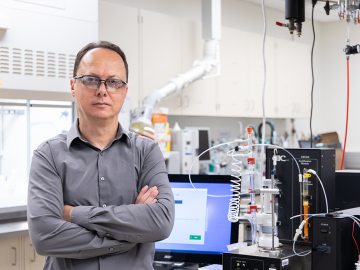
An innovative and sustainable chemistry developed at ORNL for capturing carbon dioxide has been licensed to Holocene, a Knoxville-based startup focused on designing and building plants that remove carbon dioxide
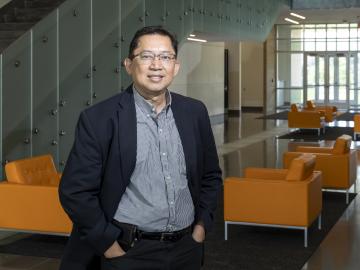
Rigoberto Advincula, a renowned scientist at ORNL and professor of Chemical and Biomolecular Engineering at the University of Tennessee, has won the Netzsch North American Thermal Analysis Society Fellows Award for 2023.
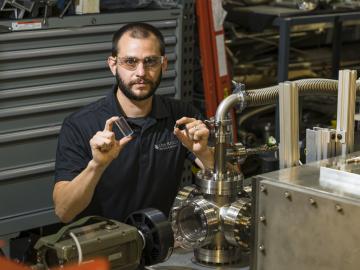
ORNL will team up with six of eight companies that are advancing designs and research and development for fusion power plants with the mission to achieve a pilot-scale demonstration of fusion within a decade.
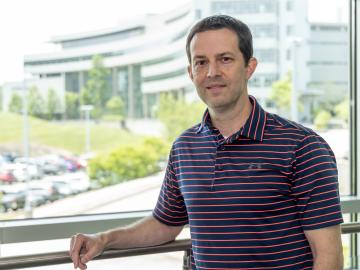
When reading the novel Jurassic Park as a teenager, Jerry Parks found the passages about gene sequencing and supercomputers fascinating, but never imagined he might someday pursue such futuristic-sounding science.
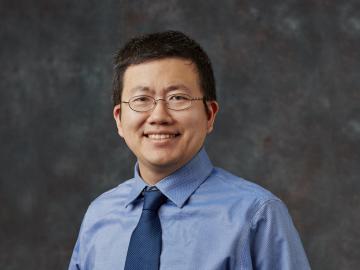
Shih-Chieh Kao, manager of the Water Power program at ORNL, has been named a fellow of the American Society of Civil Engineer’s Environmental & Water Resources Institute, or EWRI.
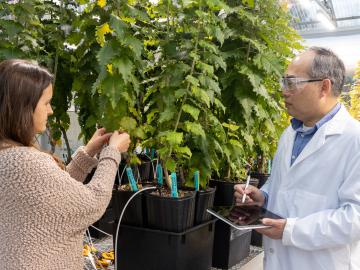
Nature-based solutions are an effective tool to combat climate change triggered by rising carbon emissions, whether it’s by clearing the skies with bio-based aviation fuels or boosting natural carbon sinks.
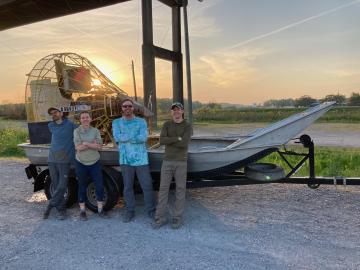
As a biogeochemist at ORNL, Matthew Berens studies how carbon, nutrients and minerals move through water and soil. In this firsthand account, Berens describes recent fieldwork in Louisiana with colleagues.
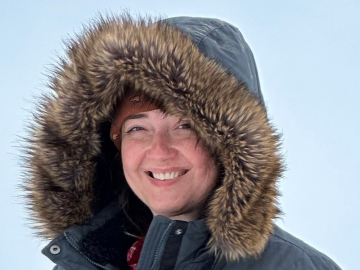
Colleen Iversen, ecosystem ecologist, group leader and distinguished staff scientist, has been named director of the Next-Generation Ecosystem Experiments Arctic, or NGEE Arctic, a multi-institutional project studying permafrost thaw and other climate-related processes in Alaska.
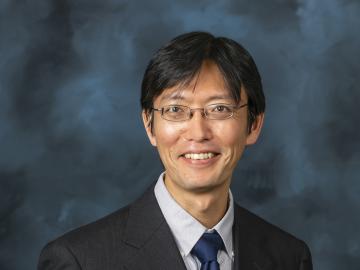
Tomonori Saito, a distinguished innovator in the field of polymer science and senior R&D staff member at ORNL, was honored on May 11 in Columbus, Ohio, at Battelle’s Celebration of Solvers.
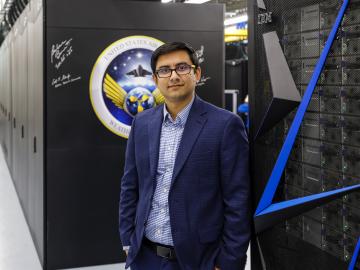
Climate change often comes down to how it affects water, whether it’s for drinking, electricity generation, or how flooding affects people and infrastructure. To better understand these impacts, ORNL water resources engineer Sudershan Gangrade is integrating knowledge ranging from large-scale climate projections to local meteorology and hydrology and using high-performance computing to create a holistic view of the future.


